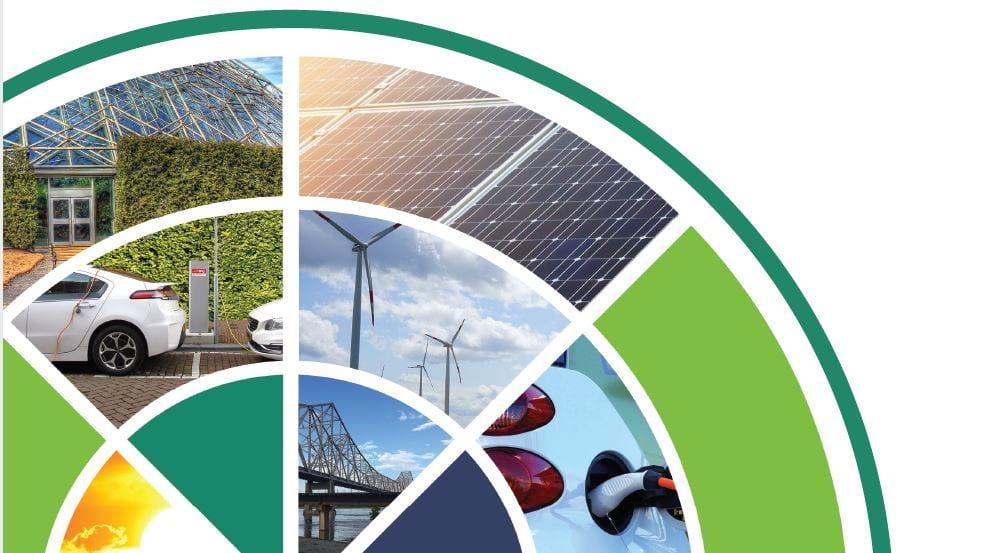In recent months, St. Louis has made headlines for the adoption of several climate-forward policies and initiatives. These include the City’s passage of a solar-ready ordinance and Building Energy Performance Standard, St. Louis County’s adoption of updated building energy codes, and the success of the first phase of the regional Grow Solar residential group-buy program (the second phase is currently underway).
These policies will help reduce greenhouse gas emissions from St. Louis-area buildings, which – together with transportation – account for the majority of emissions.
To encourage other municipalities to follow suit with meaningful climate action, the U.S. Green Building Council-Missouri Gateway Chapter, with support from WashU and Bloomberg Philanthropies, released a “policy toolkit” last month.
This document outlines a number of policy options related to energy efficiency, renewable energy, and electric vehicles, focusing on strategies that are accessible, high-impact, and can be implemented at a local level. The toolkit also provides sample policy language, resources for implementation, and specific case studies from St. Louis and the Midwest.
In addition to the environmental and climate benefits of the strategies outlined in the report, taking action can also relieve disproportionate energy burdens on low-income populations and communities of color, improve air quality and public health, reduce dependency on resources from outside the U.S., and address existing environmental injustices.
In a region like St. Louis, where Black children are more than 10 times as likely as white children to visit the emergency room for asthma-related complications, and where nearly half of Black households face energy burdens two times higher than the citywide average, the solutions outlined in this report represent a critical step towards building a healthier, more equitable, more sustainable, and more resilient future.
Effective climate action requires acknowledging the direct link between climate change and issues of social and racial equity and environmental justice.
“Advancing Energy Efficiency, Renewable Energy & Electric Vehicle Policy in the St. Louis Region” – Policy Toolkit
